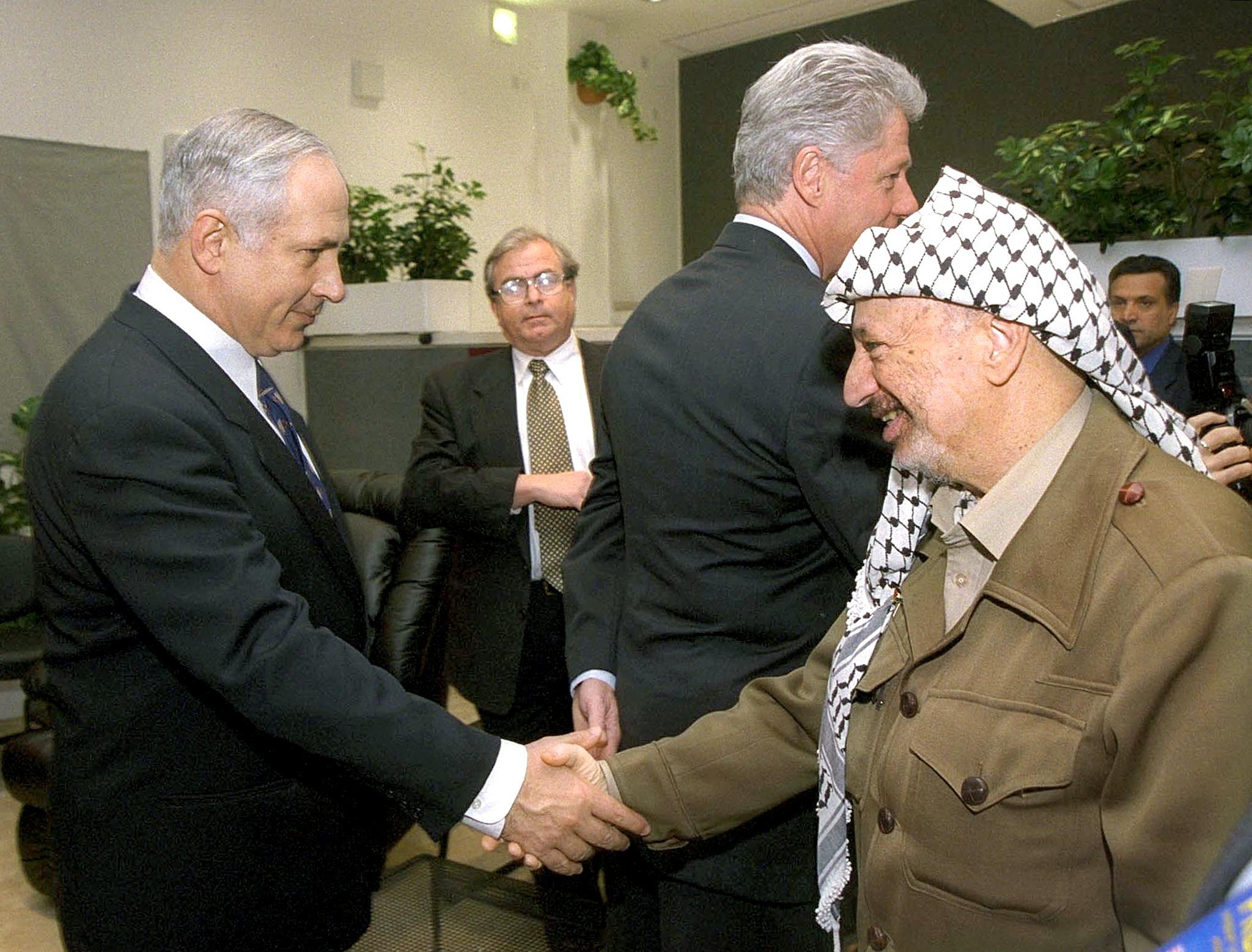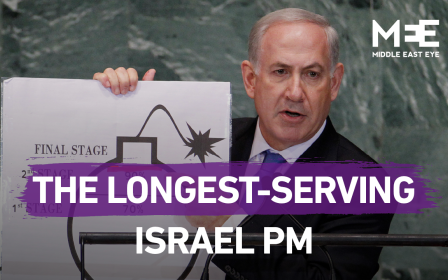UK government papers show concern over Netanyahu's first election win

British government officials were alarmed by Benjamin Netanyahu’s victory in the 1996 Israeli election, according to government papers declassified on Tuesday.
They had been hoping that Shimon Peres would win, and feared Netanyahu would walk away from the ongoing peace process with Yasser Arafat, the president of Palestinian Authority.
It was the first election in which the Israeli prime minister was elected in a separate ballot to other members of the Knesset.
Peres – who became prime minister following the assassination of Yitzhak Rabin in November 1995 – called it in the hope of securing a new mandate for the peace process.
Although Netanyahu and his Likud party began the year well behind in the polls, he won the May 1996 election by a little under 30,000 votes following a series of the Palestinian Hamas movement suicide attacks in the country.
New MEE newsletter: Jerusalem Dispatch
Sign up to get the latest insights and analysis on Israel-Palestine, alongside Turkey Unpacked and other MEE newsletters
Before the election, the principal private secretary of Douglas Hurd, the UK foreign secretary, wrote to Downing Street to advise the aides and officials of John Major, the British Prime Minister: “Should Netanyahu win, we will want to make clear off the record that we will judge him by his actions, not by his statements in the election campaign.
“We have reservations about his commitment to the Peace Process, but it will be important to allow him to put his policies into effect before we judge him.”
'A worrying reference'
The Foreign Office also offered Downing Street two versions of a statement to be issued following the election.
The statement to be used following a Peres election victory read: “We are delighted at Mr Peres’ re-election… in the context of the Peace Process. Shimon Peres has played an historic role and has achieved a great deal for peace in the Middle East.
“We now look forward to progress in the negotiations with the Palestinians.”
The statement suggested for use following a Netanyahu win read: “We congratulate Mr Netanyahu on his victory … and hope that his new government will keep up the momentum in the Peace Process.”
Following the election Andrew Burns, the British ambassador to Israel, reported to London on Netanyahu’s first speech to the Knesset: “There was … a worrying reference to his intention to encourage settlements throughout ‘Israel, Judea, Samaria and Gaza’.”
“It is reassuring, however, that neither Sharon nor Eitan have been given immediate responsibility for Foreign Affairs and Security issues in the new government.”
Rafi Eitan, a former Mossad spy, was appointed as Netanyahu's deputy prime minister, and held the offices of agriculture and environment ministries until 1999, after Ehud Barak knocked out Netanyahu in an early election.
Ariel Sharon, also known as Arik, became minister of energy and water resources until June 1999.
Meanwhile, the declassified papers show that British Prime Minister John Major was being briefed: “There are real fears that Likud policies could bring the [peace] process to a halt. There are certainly some hardline people around Netanyahu, such as Arik Sharon.”
Major subsequently wrote to both men, telling Peres that he hoped the peace process would continue, “but the gap you leave will be immense".
In his letter to Netanyahu, Major urged contact with Palestinian leader Yasser Arafat as soon as possible.
A copy of this letter was leaked to Israeli press, with the UK Foreign Office suspecting its Israeli counterpart being to blame.
When Major met Arafat a few days after the election in 1996, his aides offered a list of possible talking points.
The first point read: “Netanyahu’s victory a disappointment. But no reason to give up hope. Judge by actions not words.”
Netanyahu went on to be prime minister of Israel for all but 10 of the next 23 years.
Middle East Eye delivers independent and unrivalled coverage and analysis of the Middle East, North Africa and beyond. To learn more about republishing this content and the associated fees, please fill out this form. More about MEE can be found here.




